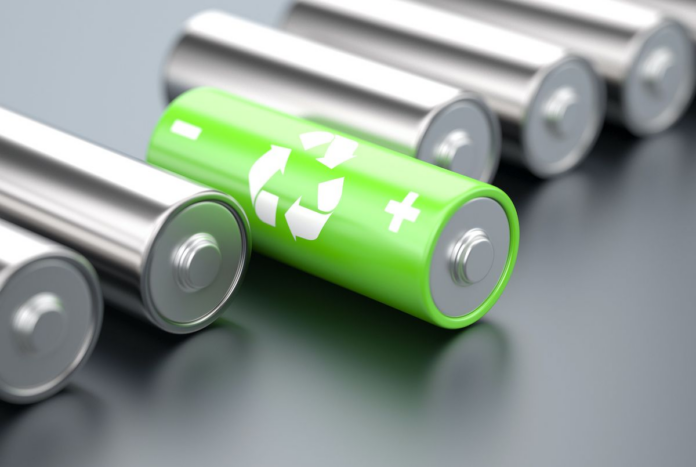The battery reuse and recycling process are essential to prevent harmful emissions and save money. There are three general stages to recycling a battery. The first is pretreatment. That involves mechanical shredding and sorting out the discarded battery materials. The next step comprises separating the cathode and the aluminum collector foil. The third step is dissolving the cathode materials through chemical or electrolytic reactions.
A Quick Guide to Battery Reuse and Recycling includes information on recycling rechargeable and single-use batteries. You’ll also learn how to dispose of your old batteries safely. Some of these techniques require the disposal of dangerous materials.

Recycle Single-Use Batteries
Single-use batteries are used to power remote controls, computer mouse, digital scales, wall clocks, kids’ toys, etc. There are a variety ofdifferent types of leisure batteries, they are widely used for camping and especially useful for owners of Mototorhomes and you can recycle nearly every one of them. However, you cannot put them in your recycling bin at the curb.
Single-use batteries aren’t typically complex. They comprise an aluminum shell with an aluminum pin collector in the middle of manganese dioxide, a carbon cathode, and a zinc anode. Steel is an excellent material for recycling, and it can reuse the other components in a snap. It is essential to recycle and reuse non-renewable components.

How Can I Recycle Single-Use Batteries?
There are many recycling options based on the battery you’re trying to get rid of. Sure batteries are easy to recycle locally, while other types you might need to go to the national effort. Sure batteries require a fee to recycle, while others are for free.
Free Recycling Options
Visit your local municipal office, waste hauler, or solid waste department to determine whether they accept single-use batteries for recycling or take them on the hazardous household day for waste collection. Local hardware stores may also sell single-use batteries for recycling, but they are not always possible to access.
To locate your closest recycling center for batteries, head onto any Recycling Locator or use the recycling search tool.
Recycling Options for Paid Customers
Alkaline batteries that are standard in their design, such as AAA, 9-Volt, AA, C, and D, can be reused in Batteries+ Bulbs stores. They typically charge a modest cost. Check your local store.
Button cell batteries typically come in unique products such as automobile fobs, watches, and hearing aids. Car dealerships, jewelry stores, and audiologists often have recycling programs to deal with the batteries in their places of business.
Various recycling options mail in, but they’re more costly. If you have significant amounts of batteries, you can consider one of the following options: Big Green Box Green, Battery Solutions, or TerraCycle. Call2Recycle recently began offering single-use battery recycling via mail. In addition, both Republic and Waste Management, giant waste haulers, provide mail-in recycling across the country for batteries.

Recycle Rechargeable Batteries
The rechargeable battery is available in a range of shapes and sizes. They are available in your car and on many electronic devices, including tablets, cellphones, and laptops. There are rechargeable batteries for the standard alkaline batteries in your home.
It doesn’t matter what kind that rechargeable batteries come in once they don’t hold any charge. It is important to recycle them to get essential substances like mercury, lead, cadmium, silver, nickel, cobalt, or graphite.
Ensure safe handling of chemicals that can be hazardous. There are many alternatives for recycling based on the battery you’re looking to eliminate. Under government regulations, rechargeable batteries are typically more recyclable than single-use batteries.

How to Recycle Rechargeable Batteries?
There are various recycling options based on the battery you want to eliminate. Because of the regulations of government agencies, rechargeable batteries are typically less recyclable than those with a single-use.
Free Recycling Options
Call2Recycle is a non-profit organization in the USA that runs this program. They offer Recycling Search Locator to assist you in finding an outlet that accepts rechargeable batteries, typically free. Here are some companies that take rechargeable batteries:
- AT&T
- Best Buy
- Black & Decker
- DeWalt
- Home Depot
- Interstate Battery Centers
- Lowe’s
- Milwaukee Electrical Tool
- Office Depot
- RadioShack
- Staples
- Verizon Wireless
Also, check with your local municipality or solid waste department to determine whether they will accept batteries for recycling or on the days of household hazardous waste collection.
To locate the nearest recycling facility for batteries, go into the recycling locator or use our recycling search tool.
Recycling Options for Paid Customers
The rechargeable batteries in your home, such as AAA 9, AA D, C, and C, are typically reused in Batteries+ Bulbs stores. Most locations charge a modest cost. They are franchise-owned, and each store has its own (although identical) programs.
When purchasing the latest product from phones, hardware, or electronics stores, buy recycled rechargeable batteries that you can use for mobile phones, power tools, or other electronic gadgets.
If you can’t find any of these stores within your local area or you’re recycling a different battery, consider a mail-in solution via The Big Green Box. In addition, substantial garbage transporters Republic and Waste Management offer national recycling programs for batteries.

Commonly Used Kinds of Batteries That You Could Keep At Home
Alkaline: This is the most well-known kind of household battery that is used for one-time use. You use them in TV remotes, flashlights, wireless mice, toys, and clocks.
Button cell: Single-use (alkaline or zinc-air) or single-use lithium; We typically apply these tiny batteries in hearing aids, also known as coins batteries. You could pose a choking risk for infants and young children.
Single-use lithium: Used in watches, cameras, hand-held games, remotes, and smoke detectors. These batteries often come with a specific shape for the item they provide power to.
Silver-oxide: You might have rechargeable or single-use button cells silver-oxide batteries found in small electronics like calculators, watches, or hearing aids.
Zinc-air: These batteries are for single-use and typically come in button forms for smaller electronic devices such as hearing aids and watches.
Zinc-carbon: You will see these batteries with a single-use function in clocks, TV remotes, smoke detectors, remotes for TVs, and other electronic gadgets for your home.

Final Words
You must recycle batteries since they are rich in materials and will never get in the garbage. They can get overheated and explode. So, it’s best to reuse batteries. Even though recycling consumes energy, battery recycling has a less negative impact on the environment than mining virgin materials. We recommend it to take batteries to a recycling facility for safe disposal. It’s an excellent way to keep batteries out of landfills.



